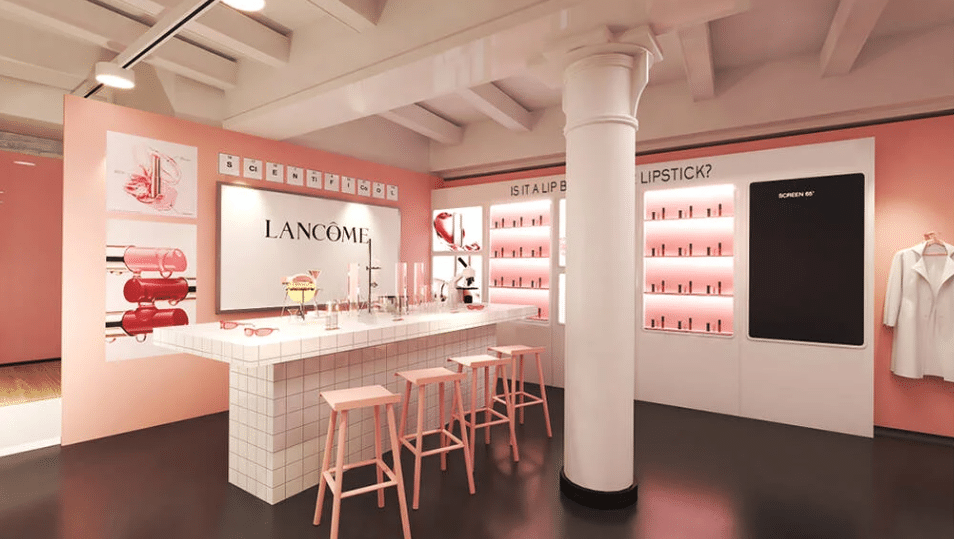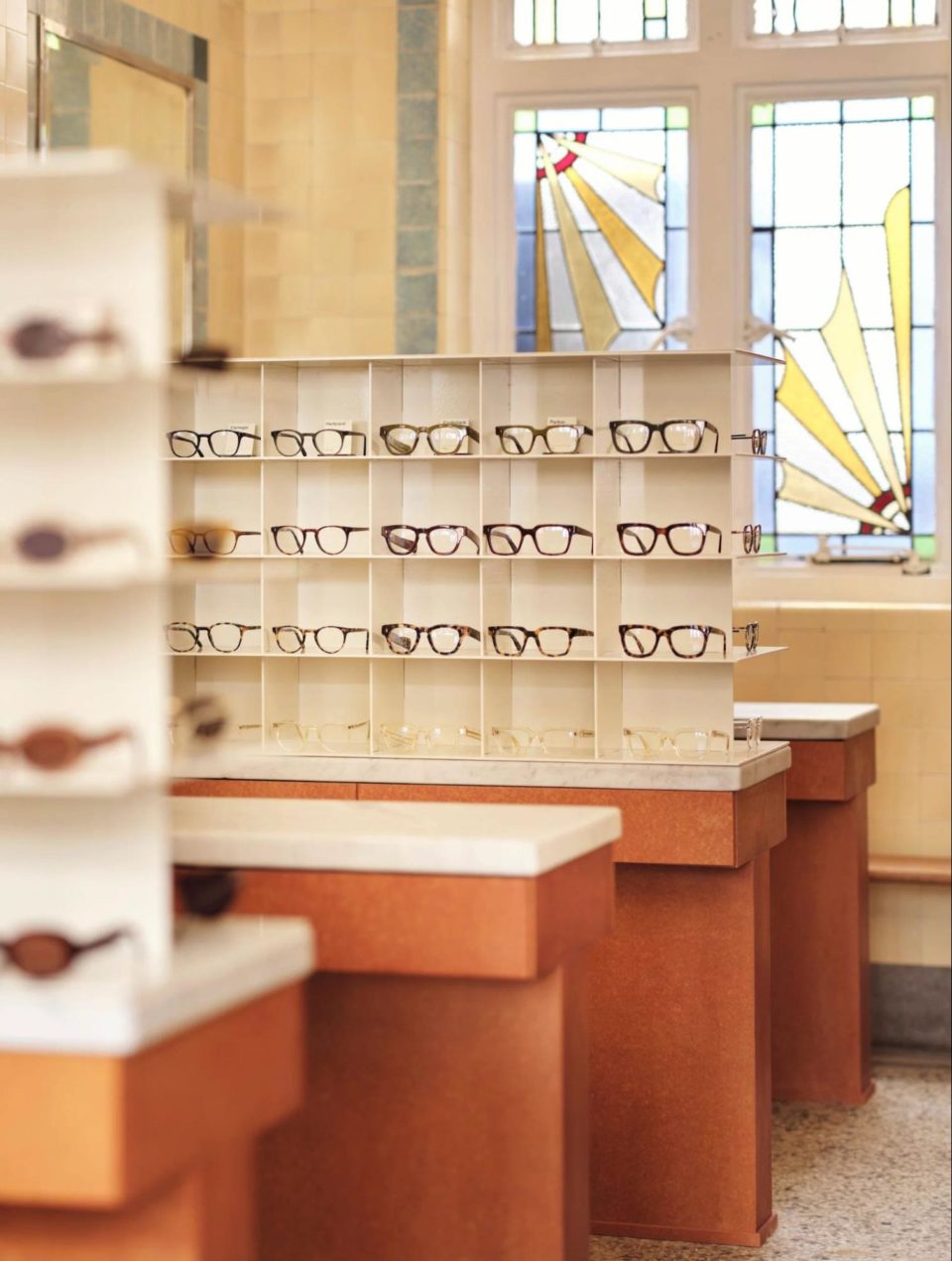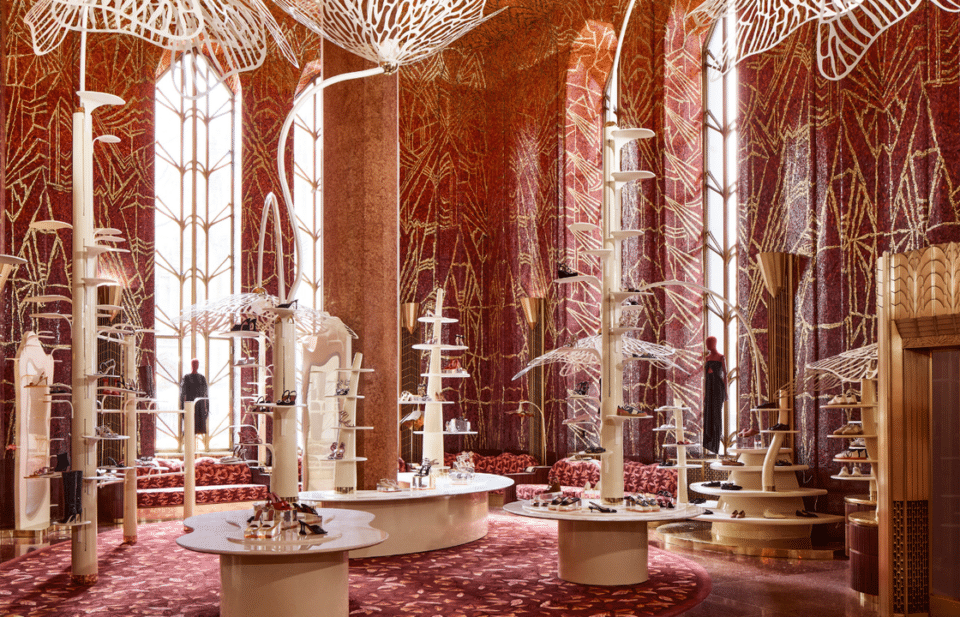How C4DR is helping drive retail’s digital revolution

The Centre for Digital Revolution or C4DR is all about driving positive change through digital technologies like blockchain, the Internet of Things (IoT), AI and more. It’s not just what these technologies can do in terms of business, but also how they can help society with the impact of them, such as the loss of jobs. This is something that retail in particular is having to contend with.
We spoke to CEO Eric van der Kleij about the inspiration behind the centre, the technologies that will disrupt retail and how retailers can keep up with the pace of change:
Can you tell me about C4DR in a nutshell?
C4DR is the Centre For Digital Revolution. Our strapline is for opportunity and for society. We focus on helping corporates, start-ups and government figure out how to take advantage of the technologies that are driving the fourth industrial revolution. The other half of what we do is help society figure out how to cope with the impact of these technologies, in particular the employment displacement impact. It’s a think and do tank.
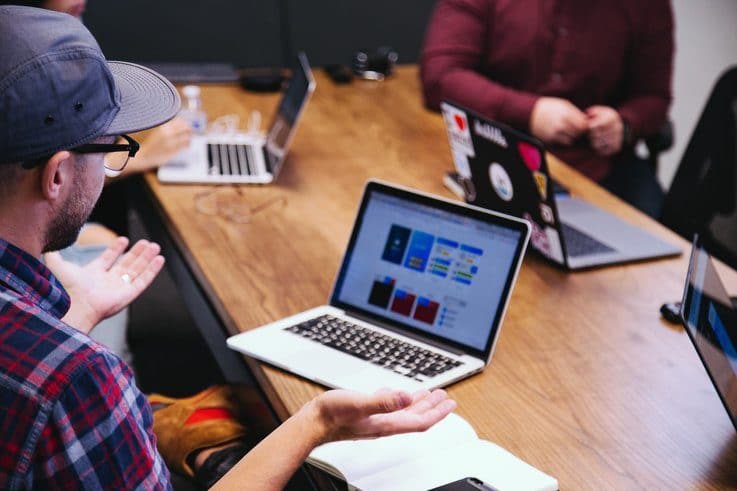
Is the social element important to the start-ups you’re working with?
Yes, massively so. In developing some of the solutions that we do, especially working so hard in fintech, the ethical custodianship of business is crucial. Every company that is has to be able to answer the question – do we share some of the responsibility for the impact of what we are building in society? They have to be able to answer yes and start to work with us to explain how to help with that. So, either they’re working on stuff that makes things better or they are working with us in the think tank side of things which is helping find solutions that will help society cope with millions of people out of work.
Is there a physical hub?
Yes. We launched the hub in May, but it’s a slightly different one in that every company in the space is strategically relevant to every other company in the space and building a product or a company with each other.
How are you funded?
It’s a normal hub in that companies pay to be here, but they have to be specifically invited to be here, or apply and be specifically relevant to be here because it’s a curated community.
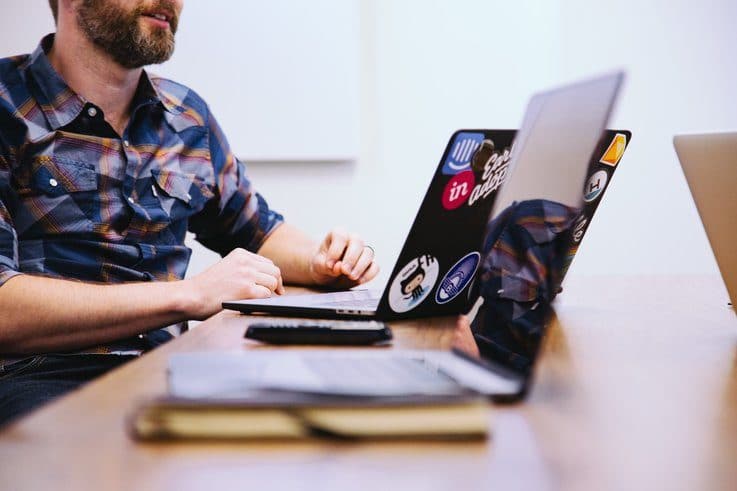
How many start-ups do you have now?
We’ve got six at the moment. The hub is only 64 desks to start with, but it’s an interesting model for us because we’re realising how much value can be curated by this thing. We literally curate serendipity and the value that flows is amazing. I think we’re finding that this methodology might be a way of de-risking early stage investing just because of the granularity of visibility and the progress and support that we can offer and the curation of the collaborations.
Many start-ups fail because of the lack of knowledge of how to deal with things. By having them close in the hub every day almost and creating a supporting infrastructure team that touches base with them every day, identifying the daily challenges they have, we help them solve their problems a lot quicker. We also curate a connection to a lot of corporates.
We hope this will mean a higher success rate for a relatively low amount of cost. If you imagine I was going to do 10 investments, and I know that eight are going to fail statistically, if I just make that seven failures or six then the return on investment is huge. We’re trying to go for five wins per ten, which is impossible, but it’s a good metric to shoot for.
Can you tell us which start-ups are working in the hub?
We have a couple of examples. One is a company called Agility Sciences, who are a blockchain protocol company and their product is called Active Ledger. They are enterprise grade blockchain, but the reason we invested in them is because they have solved some of the problems that enterprise blockchain cannot currently solve such as scaling and territoriality.
Another company, completely independent but also collaborating with Agility Sciences, are called WWG – Worldwide Generation. Using the Agility Sciences platform they’re building a blockchain platform to help funds that invest in developing countries meet the United Nations 17 sustainable development goals (SDG).
Many of the world’s biggest funds are signed up to it, but they have no method of accurately reporting to their investors their progress in tracking that. Blockchain is a gift to that challenge. It’s to the point where one day it will come to pass that I will never want to ever make a donation to a charity or to invest in developing countries without it being tracked by a platform like this because of the transparency it brings. The funds love it because it’s the first mechanism they’ve had to actually track and report on the SDGs.
We did a project with UBS called Secure Payments On The Go with blockchain technology. It’s a partnership with us, UBS, ZF and IBM. We’re building intelligent automated payment capability to embed into things like vehicles, so for example cars will pay their own bills. We have also now announced another project with Swisscom on a blockchain company.

Out of AI, robotics, blockchain and IOT which are you more excited by?
It depends. IoT is probably going to be the biggest, it’s the mother of all sectors, and that in particular is hugely relevant to retail. If you imagine that everything is sentient and connected then the value that brings us, especially in the retail sector, is the most extraordinary visibility of consumption, trends and habits that allows us to actually deliver the most customised services. This lets every single person feel like every part of a retail experience was custom designed for them, including the element of spontaneous discovery that would surprise and delight them.
IoT is going to be the biggest but it’s not the one that I think will have the most immediate impact. That will be things like blockchain, in particular in respect of supply chains in retail and finance. For example we built a supply chain finance solution that allows huge retailers here in Europe to buy from manufacturers in developing countries with transparency of the supply chain so that it can be funded. It was just a prototype, but it was wonderful because it allowed the credit rating of the Tier 1 buyer to pass right down through supply chains to the people making a small artisan button for a garment and using that to place an order.
Blockchain will be hugely valuable quite quickly for supply chain transparency, visibility and in particular in logistics. Provenance is just massive in retail so that’s a fantastic sector. Because the technology is being so rapidly worked on by so many people and wit so many proof of concepts taking place, awareness is being raised globally in the retail sector so I think that’ll be very fast impacting.
Of course, AI will impact customer service very rapidly as well as data insights. I think that the way that AI will probably come to bear in retail first is through a far better customer service experience, either an AI offering decision support to humans or in fully automated 24-hour superbly delivered customer service far better than a human could do. This is part of the fourth industrial revolution challenge. If we know that bots are better at customer service than humans, why would we not use them?

Do you have any ballpark range for when you think these things are going to hit the mainstream?
As a purely subjective guess based only on the experience of someone immersed in the industry, I would say that in the next three years blockchain will impact 20-30% of supply chain or logistics and in five years something like 70% – to the point where you would just not choose to use a supply chain that wasn’t blockchain powered. It may be quicker if people realise the value of that because of the truth and transparency. Some people called blockchain the internet of truth which is an interesting thing when you think through what that means in life. If that is the case, then most of our interactions will need to be blockchain powered in order for us to have the possibility of less risk and more truth in our interactions at every level and that goes from dating to shipping.
AI for customer service I believe will be penetrated very significantly, at 30% or so, in the next 2-3 years and then a good 75-80% in five years. That is except for in high-value, high complex interactions where the luxury of having a superbly trained human with all their fallibility and all their magic would come into bear.
The use of AI and machine learning in particular in e-commerce is even more rapid and is already taking place with some of the world’s biggest companies making billions out of it. The top five tech companies of the world truly understand this and have some of the biggest research capabilities in the field. Primary use is being analytics to create actionable insights that give them an advantage in their respective fields.
IoT and robotics I think is more gradual because although it’s bigger as an industry I think that the adoption curve is more like a 5-7 years timeframe. What you will have is individual opportunities, such as in retail where we’ve seen quite a few, very interesting, smart mirror type of technologies. But to reach a point where you’re able to point to a store and say this one is IoT enabled and therefore you have a better experience I think will be around 7-10 years.
An important factor that will be the calibrator or the Vernier dial of adoption is regulation and ethics. I think that we are barely at the beginning of our understanding of the kind of regulation and ethics that are needed to become known as the ethical custodian of people’s data harvested from their mere existence, let alone their activities and their hopes and wishes. It’s interesting because if you think about how manipulative it can be, it’s almost something that is supernaturally magical.
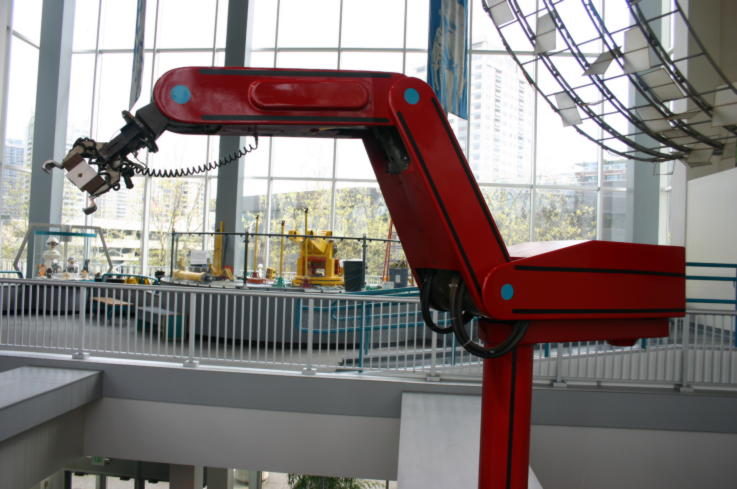
Now the trouble is that AI has the power to do that which of course has huge benefits in society. I want these things to take place. But of course the ethics behind all of this, especially as far as consumer data is concerned, and especially the data which is passively harvested, is barely understood. We’ve seen some interesting work take place with GDPR which means that we have to be a lot better at it. It’s great to see those regulations coming in place, but the ethical side of it is a whole other ball game where you can see that it would be possible to create two, three, four, five tiered societies because of the analytics of data.
It’s a bit like net neutrality for retailers where there’s this big argument that whether you’re researching on Wikipedia or you’re looking at a YouTube video your data has to have the same priority as somebody conducting a massive financial trade. I can imagine transposing the same discussion to retail where the data that retailers would have through machine learning and AI, together with IoT and passive harvesting, is so profound that they’re able to offer access to different products and services based on your predisposition of value to the retailer.
That would mean that they offer very different experiences and could even be, for reasons of efficiency, prohibitive if their bot told them that you weren’t likely to buy anything. What would that mean in society? Would certain areas of stores offer preferential deals and discounts, or would a red light traffic light go up and say no you can’t go into that part of the store because it’s not for you?
We already kind of do this in some way. If we think about the mobile phone operators when you discover that there’s a better deal that could be done and they didn’t tell you about it your loyalty goes down. If I was running a cell phone company I would use the AI to make sure that I offered the best deal always to my customers because I think it would improve retention rates. But actually they don’t do that. What they do is they optimise the yield of their customer base by focusing on targeting the value-added patches and sales calls to those who are most likely to yield more. I think there will probably be, hopefully self-imposed, industry standards in order to prevent kneejerk regulatory impact.
Brand and trust are two very interesting words that flow into all of this. There are very few brands that we universally trust. It is interesting because if I thought that I could not enter a VIP area then I would feel I’m not going to be terribly valued by that brand. On the other hand, if I was a high value consumer of a particular brand I would want to think that they were proactive and offered me advantages and loyalty bonuses.
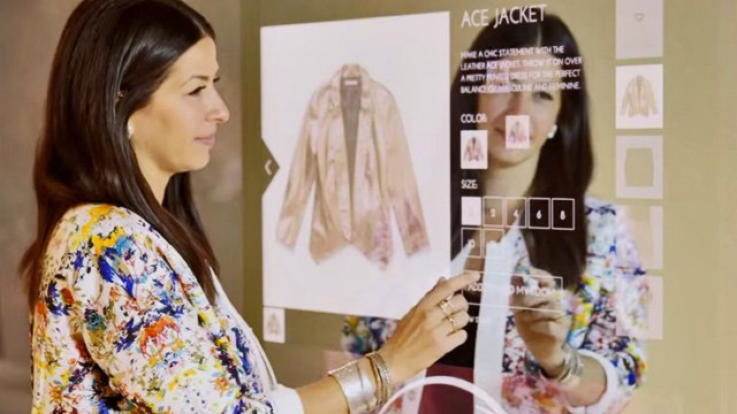
What is your feeling on how retail will change?
It’s interesting there are those that are saying stores won’t close while evidence is there of mass closing of some of the world’s greatest retailers. I think that the truthful and those that are on it are investing very heavily in innovation in a much more profound way and realistic way, as well as offering a lot more experience. This includes using technology to provide a great deal more immersive services that allow and extend the experiential part of retail such as VR and AR. These are superpowers in enabling and extending experiential retail to places and people.
First you could use them to augment an experience in-store, perhaps in your VIP or loyalty area. But then actually you could widen that and allow people with just bought a single trainer to have an experience at home with VR and AR of an activity that they might not have had otherwise. I think that the future belongs to those that invest very heavily in technology to provide a broader range of experiences and understanding of what their customers will need and want and enjoy. And you’ll probably find that there will be fragmentation of experience.
Whereas before you could say 50% of people liked in-store, 50% liked e-commerce, you’ll probably have a whole dice and slice of many subsectors. Some people wanting AR, some wanting VR, some wanting audio only, some wanting web, some wanting in-store. And some will even want to do what, for example, the banks are doing now in their retail experiences creating mobile banks which drive around communities at certain dates and times.
You can imagine a retail holo suite driving round and even scheduled to be at the end of your street where you could experience a super high quality holographic retail experience. The future belongs to those that invest very heavily, rather than just a token investment, in innovation. Some industry analysts use AI to automatically look through all the reports of Fortune 500 companies for example, looking for keywords and activities and phrases that indicate to them a higher degree of investment and deployment of innovation because they believe that that gives them a different benchmark of companies least likely to die.
Do you think we’re going to see the profitability of companies go down just so they can keep up with this accelerating rate of change?
The nuance is can the homogenisation of retail by giants such as Amazon curate the impact and the emotion of artisanal or boutique retail. Can they do that? I think that the challenge that the bigger companies have is while everyone agrees it’s a fantastic experience it is becoming homogenised and unsurprising and bland and predictable and boring.
I think there is an opportunity for quality with margin and in experience. I would pay for a handcrafted experience at a higher premium than I would for the knowledge of a homogenous mass-produced item even if it was fantastically good value. The curation of that may be part of the balance that lies in the future of retail.
But I wonder if there’s a role beyond that which they currently envisage for the giants. Of course, eBay is the real arbiter of that because they enable a marketplace. Maybe the real future lies in the resurgence of things like marketplaces.
Check-out 50 of the best retail tech startups out there in our 2018 round-up. Plus, find out how we can help you identify and discover the breakout trends in offline and online retail that will put you years ahead of your competition. Get in touch here.

